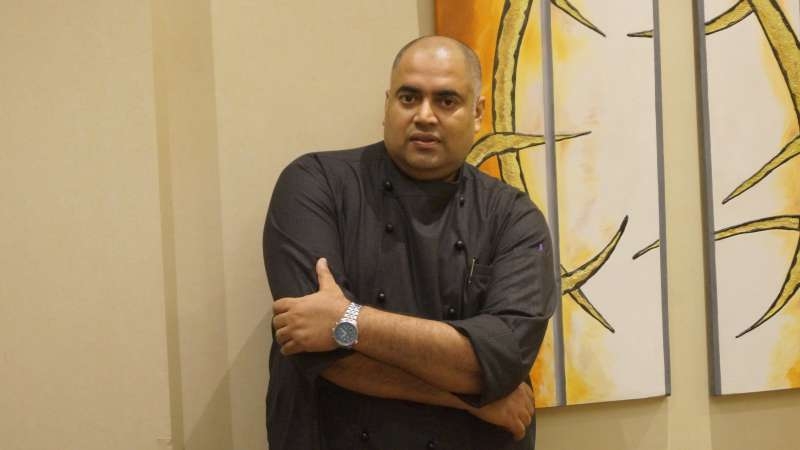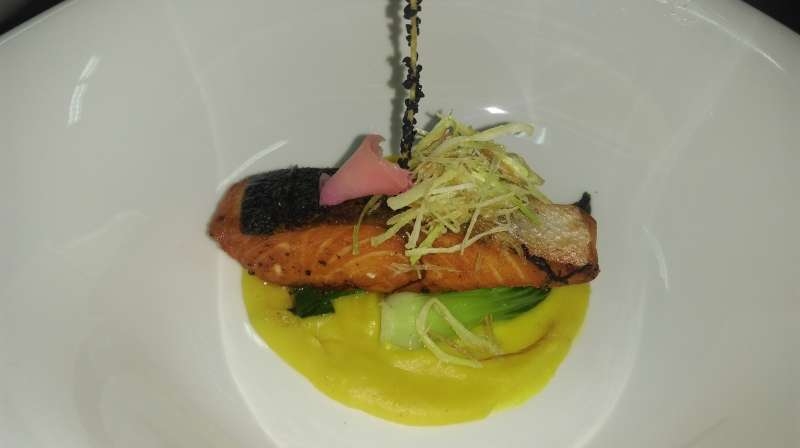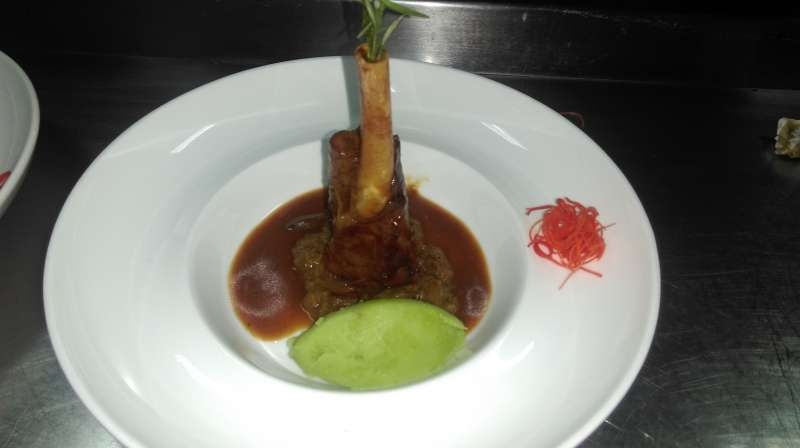Global cuisine is only touching the tip. Increasingly, you’ll be seeing more and more of regional cuisines from specific regions of countries like China and France… India’s ace Chef Sanjay Thomas talks to Vishnu Makhijani

Regional cuisines and Indian fusion dishes will be the flavour of the coming year, as will the effort to wean away children from junk food, says Chef Sanjay Thomas, a 21-year veteran of the industry. He has recently joined the Suryaa Hotel as its F&B director.
“There’ll be no more multi-cuisine restaurants. It started with international restaurants. Then there were global restaurants. All that’s passe. You’ll be seeing more of regional cuisine,” Thomas told me over a specially-crafted six-course dinner that started with a just-right chilled Fronter white wine from Chile.
“Global cuisine is only touching the tip. Increasingly, you’ll be seeing more and more of regional cuisines from specific regions of countries like China and France.
“There may even be two or three cuisines. You get a chef from the region and, voila, you are in business,” said Thomas, who in his 21-year working life has served in places as far as the Seychelles, Kuwait, Muscat, Salalah (Dhofar) and Dubai, as the amouse bouche starter — a mid-sized prawn with red chilli flakes accompanied by a fetta-mellon cube wrapped in cucumber — was served up.
“Pan-Asian, of course, will continue and you might even see a greater number of Mexican-oriented outlets opening up,” added Thomas, who studied mathematics for a year before figuring that his calling lay in the hospitality industry.
“Indian fusion could also be a big thing. Why just tomato shorba? Why not add some tofu? Then, in many places, Moroccan couscous is being used instead of semolina for making upma. It’s a ‘tadka marke’ thing, but it is fun,” said the chef as the appetizer, summer greens with cherry tomato — mango galette, eggplant caponata and balsamic reduction — arrived on the table. It was all very delicately done.

“You should enjoy doing whatever you are doing. For instance, saute your paneer in olive oil — it makes for a whole new world. Or, for that matter, gobhi manchurian. If you tell a Chinaman about this, he’ll think you’re daft,” laughed Thomas, who counts photography and motorbiking among his passions.
On the third aspect, health foods for children, he said: “I should know about this. My 11-year-old son Rohan wants a pizza. So I say: ‘Okay, you’ll get your pizza but first eat some dal and roti.’ So, everyone is happy.”
It was now time for the main course to make its appearance and it came in the shape of a huge white boat-like dish with an enormous cut of pan-seared salmon with yellow pepper coulis, a little soy souce and a curl of pickled ginger.
Needless to say, it went perfectly with the wine, what with the glass being constantly topped up, and the pickle perfectly complementing the flavour of the salmon.
It was then time for a “cleansing” break — or rather, two. The first was a tangy citrus mint granite and Thomas explained that it was crafted of dried mint roasted over a tandoor so that its flavour gets concentrated.
The other was equally ingenious — a slice of dragon fruit accompanied by a gin-laced apple mojito.
Okay, one shouldn’t mix drinks, but what the heck: What is this life if one can’t indulge and, in any case, I wasn’t driving.
The chef’s final offering was a slow braised lamb shank with shallots and roasted garlic pea mash.
And, if the proof of the pudding is in the eating, picture this: the meat came off the bone with effortless ease and was a soft and tender chew.
“We braize it with onions in a low-temperature oven for one-and-a-half to two hours. It cooks in its own juices except for the wine glazing so that its aroma is trapped within,” Thomas explained.
After all this gorging, there was barely room for the dessert but the spiced chocolate soup that was served was just irresistible — kiwi and other summer fruit in a ball of white chocolate over which a generous layer of warm chocolate syrup was poured and a wedge of chikoo and almond ice cream.

One couldn’t ask for more.
So then, how did the cooking bug hit Thomas?
“As a young boy, I was mesmerised by the flavours and aromas which wafted out of my grandmother’s kitchen,” said the chef, who hails from Kerala’s Kuttanad region, and whose mother is from Kottayam and whose father worked for Madura Coats in Kochi.
“After clearing Class 12, I studied mathematics for a year but my heart was not in it; so I sat for an all-India entrance test and was selected for IHMCT (Institute of Hotel Management and Catering Technology), Trivandrum, which is also where he met his wife-to-be, Naveena, who is an entrepreneur.
“Joining the hospitality industry allowed me to work with chefs of different nationalities and to understand various cultures and food habits. It also broadened my outlook about food taboos. Working in various countries with international companies taught me the importance of food safety and hygiene, along with the importance of using fresh produce,” Thomas added.
Perfecto!